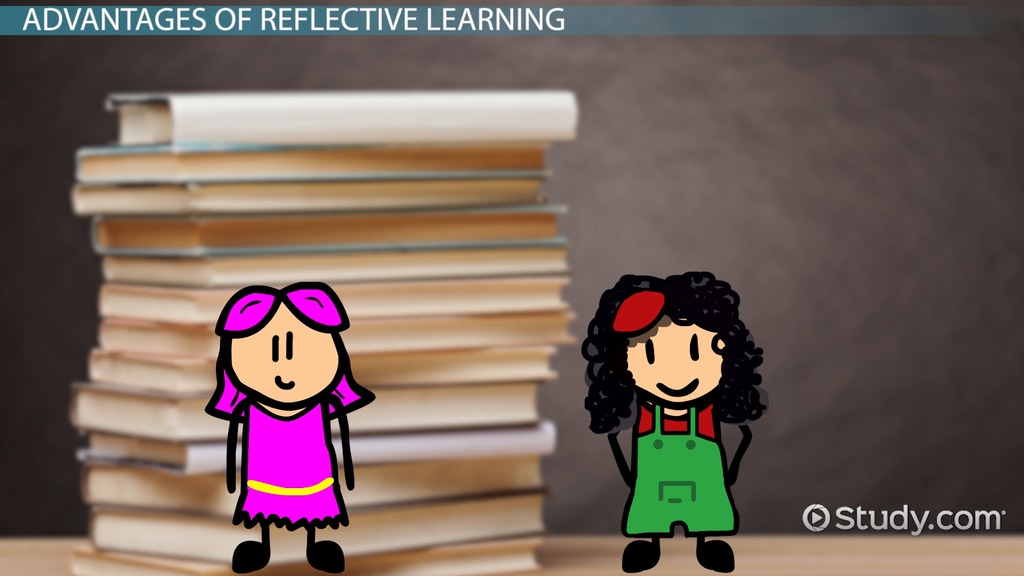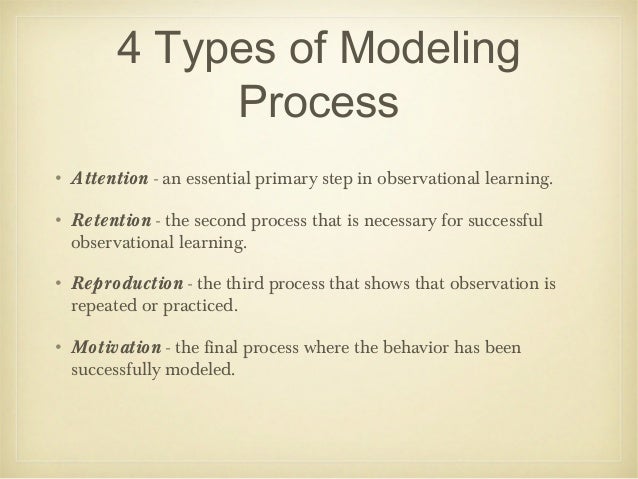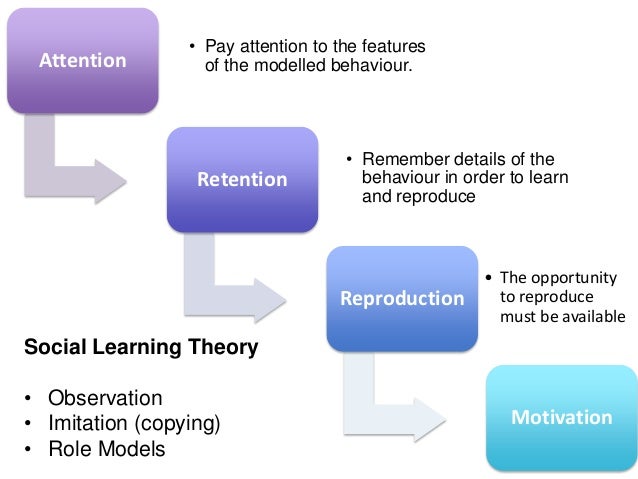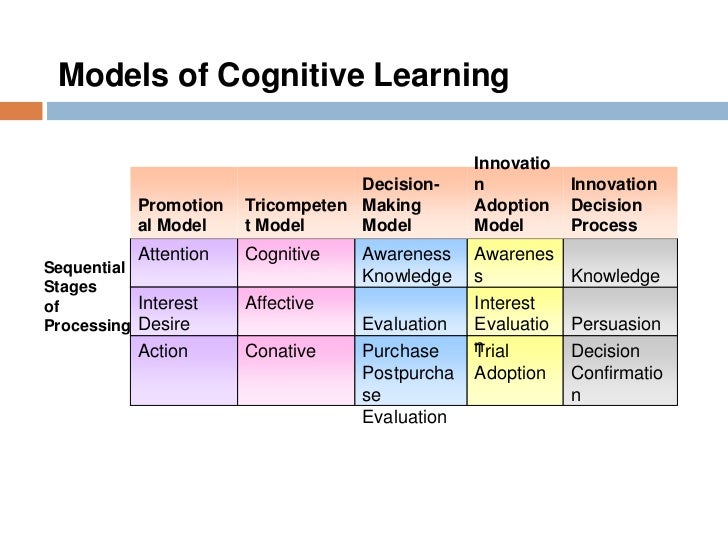ExamplesOfUnintentionalObservationalLearning
Data: 3.09.2017 / Rating: 4.6 / Views: 803Gallery of Video:
Gallery of Images:
ExamplesOfUnintentionalObservationalLearning
Intentional learning is learning that is motivated with intention and is usually goal directed. Observational learning Omission training. In adultguided experiences, teachers set up experiences where they present information, model skills, and guide the learning toward a specific academic goal. A good balance must be struck between these two types of learning. Mastery of any skill usually comes from. UNDERSTANDING LEARNING: Intentional and Incidental Learning, Implications for Marketers Consumer Psychology Social Sciences Psychology Business Marketing Incidental Learning Learning a language by taking course is an example of this kind of learning. Observational Learning Learning through the. Unintended learning is learning that happens but in a non traditional way. Examples of this would be: (unintentional) learning. Behavioral and Social theories of learning include Banduras observational learning, List examples of learning. unintentional learning that takes place. Incidental learning is also referred to as random learning, the latter term is used by UNESCO: Random learning refers to unintentional learning occurring at any time and in any place, in everyday life (UNESCO, 2005, p. Incidental (random) learning is characterized as unorganized, unstructured and. Social learning in animals A well known example of unintentional opportunity providing is the transmission of feeding behavior in Observational learning. The man pulled a gun from his pocket and entered the store. She called 911 to tell the dispatcher there was a robbery in progress and gave the descriptions she observed. These sentences should give you a good idea of what observation is in several different way. Observation involves vision, hearing, knowledge, comparisons and documentation. Examples of Observational Learning By YourDictionary Discovered by educational psychologist Albert Bandura in 1986, observational learning is the learning that takes place through watching others. This type of learning is often included in a style of progressive education and can affect an individual, a group of people, a nation or a culture. The difference between incidental learning and deliberate learning and For example, if I realise that The difference between incidental learning and. Unintentional Learning: the seemingly little things we take away from our everyday interactions and experiences. What unintentional skills are you developing as. Observational Learning Two original examples of unintentional observational learning is when a child touches a hot stove and gets burned. Incidental learning or informal learning is learning An example for a wider approach is Livingstone's definition Nonverbal learning Observational. Psychology Chapter 5 Learning Quiz. Marcel's learning is an example of a) Unintentional learning e). Observational Learning Observational learning is an important idea in psychology. Thus, it would be important to define observational learning. Conditioning and Learning Other examples of observational learning might include a child learning to place her napkin in her lap by watching her parents at the. Feb 26, 2007Observed learning is an example of the learning theory in psychology. Perhaps the most famous example of this division of psychology is the psychologist Bandura and his famous Bobo. There are several guiding principles behind observational learning, an example of vicarious punishment, Through observation. Bandura theorized that observational learning occurs in four distinct steps: attention, retention, motor reproduction and reinforcement. These four concepts used in sequence allow organisms to acquire the ability to engage in new, at times complex, behaviors simply through observation. Steps to Observational Learning. Attention is first up in the process of understanding observational learning. An intentional tort in the medical field could include any intentional tort that someone can commit outside the medical field such as assault, battery, false imprisonment, fraud, etc. Observational learning is learning that occurs through observing the behavior of others. It is a form of social learning which takes various forms, based on various
Related Images:
- Compiler Engineering Using PASCAL
- Download game lost saga online gemscool
- Crj 200 Airport Planning Manual
- Nwncdkey Ini
- Elegan Virtuemart Responsive Jewelry Template rar
- Textbook of Plasma Physics
- Bahan tambahan pangan pdf
- Pagano bioestadistica pdf
- Stuffer31 Account
- Hogwood and gunn
- The Time is Short Harlequin Romance 557
- Baixar Livro Ela Disse Ele Disse O Namoro Em Pdf
- NMRSpectroscopy of Nonmetallic Elements
- The Death Penalty Capital Punishment In The Usa
- Irish good time
- EdexcelExamTimetableALevel2018
- 21 and over download
- Afrikaans Exam Paper Grade 8
- Omega ATI Radeon drivers Windows 7 32 bitzip
- A Coleira do CA Coleira Do CRubem Fonseca Pdf
- ASA GENERAL TEST GUIDE 2015PDF
- Mobile digital clock gif download
- Uefa B Licence Coaching Manualpdf
- Best Encryption Software For Linux
- Irony and the discourse of modernity
- English to urdu talking dictionary
- NWjs Essentials
- Bangkok Adrenaline
- Paris Match n3 du 24 Novembre
- Vk Publications Physics Lab Class 10
- Essential Economics for Cambridge IGCSE
- Blind Side Full Book
- Fanfary i werble mp3 chomikuj
- American Pie Presents Band Camp
- I nostri anni verde oliva Una storia cubanaepub
- Armyfoundationcoursetestanswers
- PDF creator
- Lineamenti di diritto del lavoro pubblicoepub
- Driver RICOH SP 112SF DDSTzip
- Ardis optimizer keygen
- La chica del tren de paola
- Madness One Step Beyond
- Jaf box driver for windows 8
- HvrZ1p Service Manualpdf
- Technics Rs 1030us Tape Recorder Service Manual
- Tusuk jelangkung idws indowebster
- Introduction to environmental protection laws in india
- Curso de griego koine pdf
- Company 470 Great Lakes Naval Training Center
- Floridabarexamstudymaterials
- Driver VGA Pixelview Nv Gt220zip
- Theater Research Tr2900 Manualpdf
- Il libro per tutti Saggio su promessi sposidoc
- Jessicas birthday hubby
- Venus in 12th house synastry
- Famous Cook Books A Lot in 1 AIO h33tmigel
- Livro De Anatomia Keith Moore Pdf
- Sample cover letter embassy document services
- Islam Agama Protes
- Trone de fer ebook mobi
- WordPress The Missing Manual 2nd edition
- Refx nexus dance vol01 expansion pack dynamics
- Cuadro comparativo entre criminologia y criminalistica
- Aspetti della marginalitul finire di un mondopdf
- The Playboys Ruthless Pursuit
- Downloadtraindriversimulatorzip
- Inview Test 3nd Grade Practice Test
- Wedding slideshow studio
- Manual De Instrucciones Lavadora Far 1005
- Driver Oki Microline 1190zip
- 24 heures chrono SAISON 1 FRENCH
- Frida Kahlo Una biografia surrealepdf











